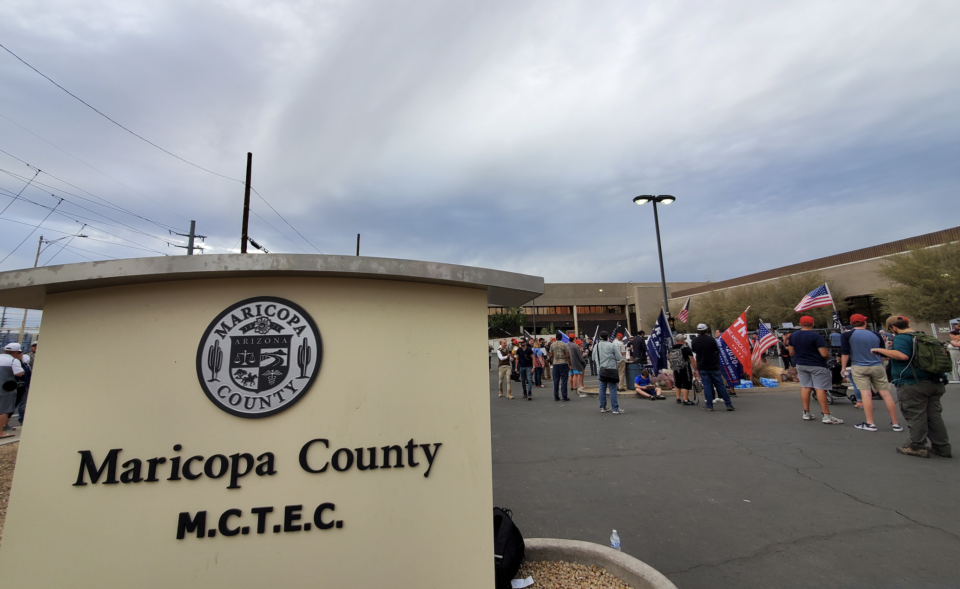Democratic Arizona Governor Katie Hobbs vetoed Senate Bill 1246, which aimed to extend a transit sales tax in Maricopa County, the state’s largest county, for another term. This half-cent tax has funded transportation projects for nearly four decades. The disagreement over the bill arises from the failure of Republican and Democratic lawmakers to reach a consensus on how to allocate the revenue generated by the tax.
Originally approved by Maricopa County voters in 1985 and extended in 2004, the tax was intended to fund crucial infrastructure projects in the Phoenix area. It has supported the development of freeways, bus services, and the light rail system to accommodate the county’s growing population.
The Republican lawmakers behind the bill sought to place two questions on the ballot. The first would ask voters whether they wanted to increase funding for highway projects. The second question aimed to redirect funding from initiatives such as “active transportation” and “air quality” towards arterial road construction. The intention was to address the demands for light rail projects by providing the necessary funding through the Maricopa Association of Governments (MAG).
Governor Hobbs had already indicated her intent to veto the bill, as she sought a bipartisan solution that would prioritize light rail projects alongside other transportation needs. The veto reflects the ongoing battle over the future of transportation in Maricopa County, a rapidly growing county with a substantial population.
Republicans argued that their proposed extension of the sales tax would allow voters to evaluate the transportation plan on its merits and choose the funding options that align with their commute patterns. They criticized the county’s light rail system, describing it as inefficient and unpopular, while prioritizing investment in the freeway system and aiming to restrict the expansion of light rail projects.
On the other hand, Governor Hobbs disagreed with the Republican assessment, stating that the partisan bill failed to support Arizona’s economic growth and the creation of jobs. She encouraged legislators to consider a bipartisan compromise that has garnered support from a majority in both the House and the Senate, as well as community leaders and city officials in Maricopa County.
Mayors of several cities in Maricopa County, including Phoenix and Mesa, opposed the Republican proposal, arguing that it did not align with the transportation needs of the growing county. They appreciated Governor Hobbs’ veto and called for the legislature to reconsider a compromise bill that would benefit all residents and contribute to the region’s economy.
The ongoing debate highlights the complex challenges of transportation planning in Maricopa County. The disagreements range from funding allocations to the prioritization of different modes of transportation. Ultimately, the resolution of these issues will shape the county’s transportation infrastructure and impact the daily lives of its residents.

